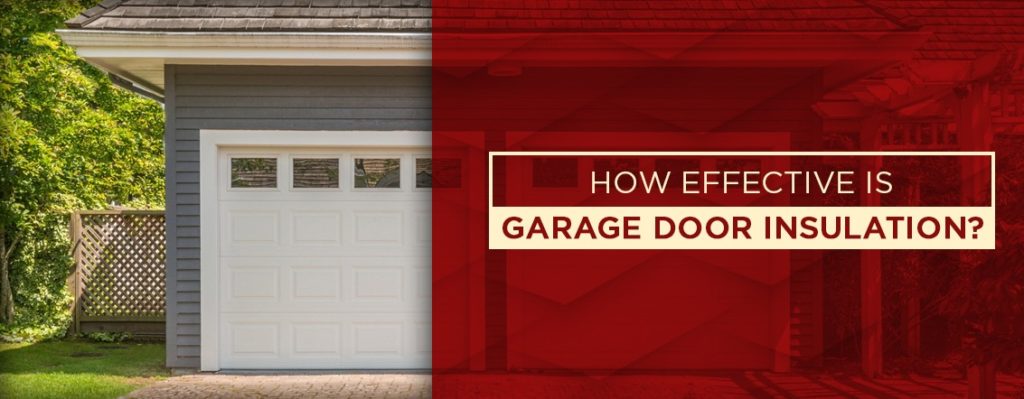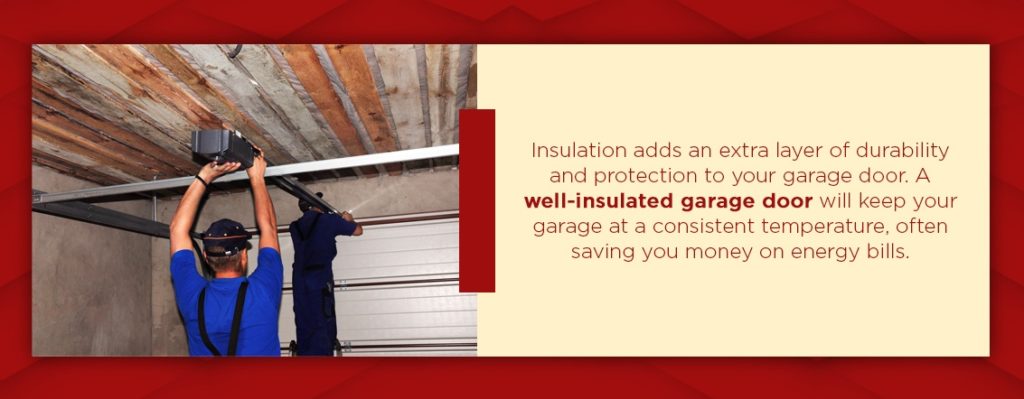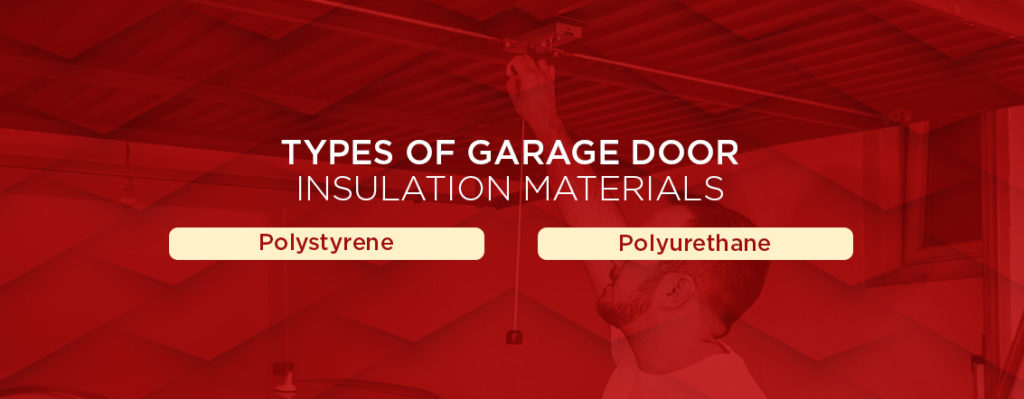Is it Worth Buying An Insulated Garage Door?
If you are in the market for a new garage door — or simply want to upgrade your current one — you have probably encountered a lot of questions and choices. What style door do you want? What kind of door opener is best for your lifestyle? Do you want a door with windows? What is an insulated garage door? Should you choose an insulated or uninsulated garage door?
At A Better Door Company, we want to help you make informed decisions. In this guide, we’ll discuss the pros and cons of insulated garage doors and how important garage door insulation is for energy efficiency, comfort and safety. In short, yes, insulating a garage door will help your home maintain temperatures in hot and cold seasons and retain energy efficiency. But let’s unpack that more, keep reading to learn more about the kinds of insulation and what each will do for you.
Table of Contents:
- Why Insulation Is Important for Garage Doors
- 6 Benefits of Insulated Garage Doors
- Cons of Garage Door Insulation
- Types of Garage Door Insulation Materials
- What Is R-Value and Why Does It Matter?
- So…How Effective Is Garage Door Insulation?
Why Is Garage Door Insulation Important?
Insulation adds an extra layer of durability and protection to your garage door. A well-insulated garage door will keep your garage at a consistent temperature, which helps reduce your energy costs. Insulating your garage door is expected to help your garage remain a difference of 10-14 degrees warmer in the winter and as much as 22-26 degrees cooler in the summer. With Long Island averaging a high of 84 degrees in July and an average low of 41 in January, that can make a big difference for anyone anticipating spending long periods of time in their garage, as it helps keep the heat out in the summer, and the cold out during the winter. This energy efficiency is also better for the environment around you. Plus, insulated garage doors can help protect your garage and its valuables from inclement weather and break-ins.
How Do Garage Door Windows Affect Insulation?
Garage doors with windows benefit equally from insulation. However, windows do make insulation more challenging. When selecting insulated garage doors with windows, choose double-paned windows — these will add an extra level of insulation, as long as they are installed and sealed correctly. If you’re not in the market for a new door but are still looking to enjoy the same benefits of an insulated garage door window you’re in luck! Common solutions for this often include using weatherstrip tape, caulk, and adding window treatments. Whether you’re looking to insulate an existing door or pick out a new door with proper insulation for New York’s weather, A Better Door Company has you covered! Give us a call today to talk to one of our technicians about your new garage door.
Attached Garages and Insulation
For garages that are attached to your home, insulation is especially important. Attached garages with an uninsulated door can cause your home heating and cooling system to run continuously, as all warm and cool air will escape through the garage door. Whether it’s an attached or detached garage insulated door, you should always have the following components:
- Properly sealed doorways: Make sure the door between your home and the garage — as well as the garage door itself — is properly sealed, and there are no gaps for air leakage.
- Insulated walls: All walls between your home and garage — including any upstairs living spaces — should be insulated just as thoroughly as you would insulate any other wall in your home.
- Closed windows: All windows should be closed and sealed when the heating or air conditioning is running inside your house to prevent energy waste.
6 Benefits of Insulated Garage Doors
There are several reasons to have an insulated garage door, including:
1. Noise Reduction
You likely make a lot of noise in your garage, especially if the space doubles as a workshop or in-home gym. Insulated garage doors are thicker, which means they reduce noise pollution. With an insulated garage door, you don’t have to worry about bothering people in other parts of your home or your next-door neighbors. Alternatively, you don’t have to worry about any external sounds — like nearby traffic and strong storms — bothering you while you work. With insulation, the operation of your garage door will often be quieter as well.
2. Energy Efficiency
According to the U.S. Energy Information Administration (EIA), home cooling accounts for almost 15 percent of residential energy consumption, while space heating and heat pumps account for about 15.9 percent. Warm and cool air easily escape through unsealed and uninsulated garage doors, meaning your heating and cooling system has to continuously operate to keep your garage up to a constant temperature.
For maximum home energy efficiency, the Department of Energy recommends insulating everything from the roof to the foundation, including garages and the walls connected to them. Depending on which part of the country you live in, you could see significant energy savings and a reduction in your heating bills.
3. Durability
Because garage doors are designed with extra layers of aluminum, wood or steel protection, they are much stronger and more durable than uninsulated garage doors. They are less likely to dent, rust or warp. When it comes to insulated versus non-insulated garage doors, this durability means the difference between more frequent repairs or replacements. Insulated doors typically require less maintenance due to their reinforced nature.
4. Safety
Unfortunately, home burglary is an all too common occurrence. According to the FBI, a burglary occurs every 22.6 seconds in the United States. Unsecured garage doors may be an open invitation to thieves. The stronger your garage door is, the less likely a burglar will be able to breach it in the event of a break-in. In addition to a heavy-duty insulated garage door, other ways you can deter property crime are:
- Installing a home security system: Sometimes, just the sight of a home security system will deter a thief. Choose a system that will alert you of any disturbances while you are away.
- Keeping your garage doors locked: You should secure your door any time you are not in your garage, including when you leave the house, at night and even during the day.
- Reinforcing garage door windows: Thick, double pane windows are not only the better choice for insulation, but they are safer, too. When choosing your garage door, try to select one with windows that are placed higher on the door, to limit visibility from the outside while still letting in plenty of natural light.
5. Comfort
The purpose of an insulated garage door is to help regulate the amount of cold and hot air escaping to and from your garage. A more stable, constant temperature makes for a more comfortable environment. It keeps your garage warmer in the winter and cooler in the summer. If you or your family spends a lot of time working in the garage — or if you do not want to worry about getting into a freezing cold car on winter mornings — an insulated garage door is a smart investment. A stable garage temperature is also crucial if you are storing any food products in your garage.
6. Sustainability
Insulated garage doors lead to less energy waste in your home. Less wasted energy is better for the environment in the following ways:
- When you use less energy, power plants produce less. When power plants produce energy, they often do so by burning fossil fuels, which releases excess greenhouse gasses into the air.
- As more and more people lower their energy consumption, there is a smaller demand for fossil fuels. Since fossil fuels are a nonrenewable resource, the more we save, the better off we will be.
- Less used energy means less disturbed ecosystems for plants and animals, and it lessens the chances for oil spills and land clearing.
Cons of Garage Door Insulation
Although insulated garage doors are an excellent choice for your home, there are a few factors to consider before making your decision, including:
Upfront Cost
The cost of an insulated garage door is usually higher than the cost of an uninsulated one. For some homeowners, this may be a significant factor in your decision to invest in an insulated garage door. As you evaluate this financial investment, keep in mind the amount of money you can save in the long-term. What you may spend more initially will likely be returned to you — and then some — in energy savings.
Environmental Factors
In some cases, an insulated garage door may not be as necessary as others. For example, if you live in a warm environment that rarely experiences cold temperatures, you may find it less of a worthy investment. If this is the case, be sure to consider other ways an insulated garage door may be beneficial to you before making the final decision. You may not have to worry about cold weather, but you should still consider an insulated door for a few additional reasons:
- Insulation is just as important when it’s warm: If you use air conditioning or central air to cool your home, you want to keep the cold air from escaping outside. Insulated garage doors will help regulate your garage temperature, and possibly the temperature of your house if you have an attached garage.
- Added safety never hurts: Keeping your belongings safe and secure is a common concern no matter where you live. Insulated garage doors will help protect your valuables and your home from possible theft or severe weather.
- You live in a noisy neighborhood: If noisy neighbors or heavy traffic are an issue where you live, don’t be too quick to decide against insulated garage doors.
Types of Garage Door Insulation Materials
There are different types of insulated garage doors, depending on the material used. The two most common types of garage door insulation materials are polystyrene and polyurethane:
- Polystyrene: Polystyrene is a synthetic polymer made from Styrofoam. Polystyrene is waterproof and an affordable garage door insulation material. It is easily modified and customized to fit any garage or size or construction.
- Polyurethane:Polyurethane is a more complex synthetic polymer, and is often more expensive than polystyrene. However, that added cost comes with additional benefits. The biggest difference between polystyrene and polyurethane garage doors is thickness. Polyurethane insulation is much denser, which means it is more structurally sound and effective at reducing noise.
Door Materials and Insulation
Some garage door materials are more naturally insulating than others. However, with additional layers and insulation, any garage door can be crafted to meet your needs and wants. Some common garage door materials are:
- Wooden garage doors: Are wood doors insulated? Many homeowners want a wooden garage door because they offer timeless style and curb appeal. Don’t worry about sacrificing insulation for design, though. Today, high-quality wooden insulated garage doors — including Clopay® insulated garage doors — are constructed with multiple layers of wood and insulation, making them an excellent choice for your home.
- Steel garage doors: Steel doors are a sleek style choice, and a practical decision for a homeowner interested in a low-maintenance, high-quality door. Steel garage doors are often constructed in multiple layers, which make them natural insulators. When you add an extra layer of insulation, you get a garage door that truly delivers.
Some garage doors, including Canyon Ridge® Collection carriage style doors, are constructed out of both steel and a wood composite. Steel and wood doors offer the best of both worlds: the beautiful, wood-like finish you love and the durability and insulating power of steel frames and an Intellicore® interior.
Weatherstripping
Garage door insulation also includes weatherstripping on the bottom and sometimes around the sides of your door.
Weatherstripping is a long, often angled strip of rubber or vinyl. It helps keep out water from rain and snow and helps block unwanted airflow. Unlike insulated doors themselves, which are very long-lasting, weatherstripping ages over time and requires periodic maintenance and replacement.
What Is R-Value and Why Does It Matter?
R-value is a measurement used to determine the thermal resistance level of insulation. The higher the listed R-value of a garage door or insulation, the more effective it is at insulation.
For example, insulated Modern Steel™ Contemporary Garage Doors have an R-value ranging between 4.4 and 18.4, depending on the chosen thickness. The R-value of an uninsulated garage door, on the other hand, would be much lower.
Always consider an insulated garage door’s R-value before choosing the right one for your house. Your ideal R-value depends on a few factors, including the climate where you live and the type of heating and cooling system you use. You can calculate which R-value is ideal for your home and use this information to make an informed garage door purchase.
So…How Effective Is Garage Door Insulation?
Do you need garage door insulation? Garage door insulation can be very effective. However, the exact level of effectiveness depends on a few factors, including:
- The climate you live in: Insulation is more effective in some environments than others. For example, frigid cold temperatures or tropical heat will require a more thorough and intensive insulation process.
- The type of insulation: Both polystyrene and polyurethane garage door insulation work well, but polyurethane is typically denser and more efficient at reducing sound pollution and maintaining a constant indoor temperature. Some door materials, like steel, are naturally more insulated than others.
- The rest of your garage: If your garage door is insulated, but the rest of your garage is riddled with gaps, or other structural issues, you will not see a significant change. To get the most out of your insulated garage door, make sure all other parts of your garage are insulated as well, including your roof, floor, walls, windows and any attached living spaces. If you have a finished room above your garage — whether it is for storage or you use it as an additional living space — it is necessary that you insulate this room the same way you do the walls and ceilings in your house.
Visit A Better Door Company Online to Request Your Estimate
A Better Door Company specializes in garage door installation, maintenance and repair. No matter what type of garage door or garage door opener you are looking for, we have what you need.
Shop A Better Door Company’s selection of high-quality insulated garage doors today.





